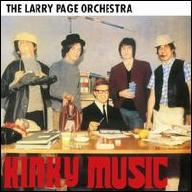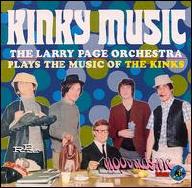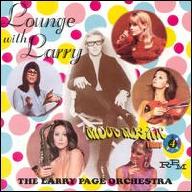Page wasn't reliant upon the Kinks for income; he also had success helping to organize tours of the U.K. by American artists like Sonny Cher and Bob Lind. By 1966, Page was managing the Troggs, who had a massive international hit that year with their second single, Wild Thing. With the Troggs, Page was also able to take the reins as their studio producer, and it's likely he learned some lessons well from his tenure with the Kinks, as Wild Thing had the same kind of riff-driven power chords characteristic of early Kinks hits, executed in a cruder fashion. Most of the Troggs' releases, through the early '70s, would appear on Page's own record label, Page One (though these were often licensed to Fontana or Atco in the U.S.).
Managers extending their duties to producing do not always make a good go of it, finding themselves out of their depth. From what's in the grooves, it seems that Page was more able than most; perhaps he was aided by his previous experience as a recording artist and cutting demos with the Kinks. The Troggs' best recordings had an appealingly raw and crunchy guitar sound with salacious vocals, but were always tightly focused and riff-driven, so as to capture the imagination of pop listeners. Occasionally they could also employ orchestration effectively, most famously on Love Is All Around, but also on lesser-known sides like Any Way That You Want Me. Of course managers also, more so in those days than in the present, were sometimes able to get their own compositions recorded by their clients and generate royalties. Page did this with the Troggs, though never on their hits. The Troggs didn't like some of Page's material, but he actually wrote or co-wrote some of their decent B-sides and album tracks, like I Want You, Gonna Make You, Girl in Black, and the lovely Cousin Jane.
Page's management contract with the Troggs, however, was terminated in court in 1967, in a confusing and acrimonious manner reminiscent of his difficulties with the Kinks. The group still had to honor their recording contract with the Page One label, though, with Page as producer, which must have made for some pretty tense moments, although Love Is All Around was done during this period. Tired of the litigation arising from his most successful groups, Page subsequently concentrated on less cutting-edge acts and projects, including novelty records and singer Daniel Boone. In a strange turn of events he reassumed management duties for the Troggs in the '70s, and in an even stranger affair, he took over management of the Kinks in the mid-'80s. ~ Richie Unterberger, Rovi
|
1
|
|
Erotic Soul |
|
2
|
|
Chasing |
|
3
|
|
Touch |















